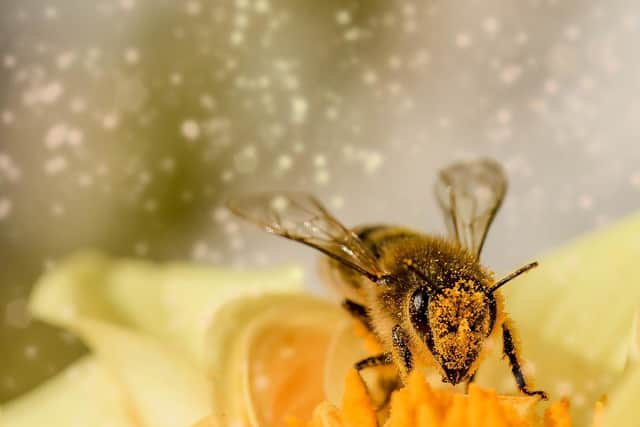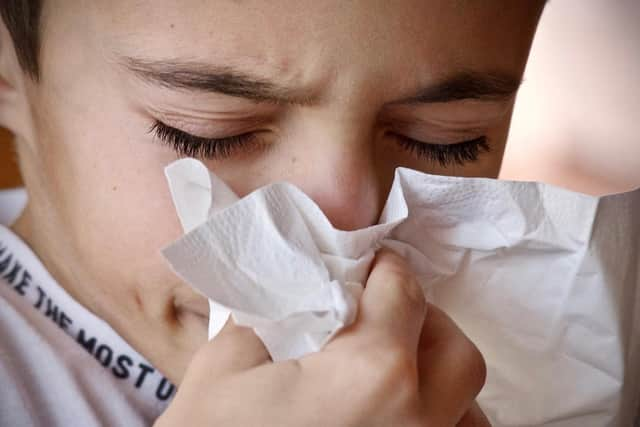High pollen alert for Sussex: expert gives advice on coping with hayfever
and live on Freeview channel 276
Hay fever is a common allergic condition that affects up to one in five people at some point in their life. Symptoms include a runny nose, sore and itchy eyes, coughs and sneezes, headaches and tiredness.
Julia Powell, chief executive officer at Community Pharmacy Surrey and Sussex said: “Hay fever and allergies can be so uncomfortable and have a real impact on people’s lives.
Advertisement
Hide AdAdvertisement
Hide Ad“It’s really important to treat symptoms correctly and ensure the appropriate products are being taken to treat symptoms. The good thing is that hay fever and allergy medicine is easy to obtain without the need for a prescription from your GP.


“Pharmacists are trained and available on a walk-in basis to give advice on the best ways to treat symptoms, and help you choose the most appropriate treatment. They can provide effective over-the-counter medicines right there and then.
“Your local pharmacy should always be the first point of call for dealing with issues such as hay fever. If your symptoms suggest it’s more serious, they’ll ensure you get the care you need.”
There are also lots of self-care remedies to help manage hay fever and allergy symptoms at home, these include things like:
- Taking over the counter antihistamines


- Putting Vaseline around your nostrils to trap any pollen
- Wearing wraparound sunglasses
Advertisement
Hide AdAdvertisement
Hide Ad- Avoiding triggers where possible, such as grassy areas and flowers
- Keeping your clothes and house clean to remove any pollen
- Buying a pollen filter for the air vents in your car and a vacuum cleaner with a HEPA filter
- Be aware of the pollen count and on high pollen count days (often warmer days) take steps to minimise exposure such as keeping windows closed in your house, office or car
- Identify your allergens and triggers and take measures to avoid them. Keep a record of when these triggers are most troublesome and make sure to take effective medication early.
Advertisement
Hide AdAdvertisement
Hide AdIt might be time to visit a GP, or call NHS111 if you experiencing wheezing, breathlessness, or tightness in the chest, if pregnant or breastfeeding and symptoms don’t improve after avoiding triggers, or if your symptoms don’t improve after taking over-the-counter medicines.
A&E and 999 should only ever be used for serious emergencies such as anaphylactic shock, suspected heart attack or loss of consciousness.
Click here to find your nearest pharmacyOr here to find out more about hay fever on the NHS websiteThe NHS urges people not to visit a pharmacy if you, or anyone you live with, has signs or symptoms of COVID-19 (a high temperature, a new, continuous cough or loss or change to your sense of smell or taste).